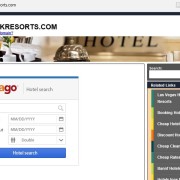The Tax Receivable Agreement of the Red Rock Resorts IPO
Read our in-depth analysis of the tax receivable agreement here.
Investors should demand a cap on the TRA payments to protect themselves and Red Rock Resorts against potentially unlimited exposure and draining of the company’s cash.
Tax receivable agreements are criticized by experts. TRAs found in IPOs are frequently criticized for benefiting pre-IPO owners at the expense of the public company and outside shareholders. Moreover, TRAs have been promoted by corporate tax firms as a way to monetize tax attributes for the
pre-IPO owners during an IPO even though such agreements “are not fully understood by public stockholders.”
What are the terms of the Red Rock Resorts TRA? Red Rock Resorts will be required to pay pre-IPO owners a yet-to-be-disclosed, “substantial” amount of money for the tax benefits it realizes from acquiring partnership interests in Station Holdco LLC. The January 14th amended S-1 filing states that the public corporation will pay pre-IPO owners 85% of its tax benefits in cash and keep only 15% for itself. The 15-plus year agreement will not be based on continued ownership by the pre-IPO owners and the Fertittas, who will be the controlling shareholders after the IPO, can cause Red Rock Resorts to accelerate the TRA payments at any moment.
TRA payment liabilities can increase after the IPO. An examination of other companies which have gone public with similar TRAs reveals that estimates made at the time of an IPO commonly increase, exceeding the company’s IPO proceeds and annual EBITDA. Red Rock Resorts admits its calculations will be “imprecise” and there is no guarantee the company will realize the tax benefits it is paying to insiders. Furthermore, the company discloses that payments made under the agreement will spur additional payments to insiders and may significantly impact the liquidity of the company.
Investors deserve more information and protection. Red Rock Resorts should provide justification for the 85%-15% split, clear estimates of the annual and lump-sum payments to the pre-IPO owners, and disclosures regarding how the payments will affect free cash flow and capital expenditures. Furthermore, prospective investors should demand a cap on Red Rock Resorts’ TRA payments to the Fertittas and other pre-IPO owners to avoid potentially outsized or even unlimited exposure in the future.
See more of our analysis of the Red Rock Resorts/Station Casinos IPO:
- The insiders are cashing out at a high price compared to the company’s estimated equity.
- The tax receivable agreement could drain substantial amount of cash out of the company and affect free cash flow.
- The dual-class structure will make public investors second-class shareholders.
- The lack of disclosure regarding the regulatory problems of Deutsche Bank, a 25% current owner.
- Growth concerns in the company’s primary Las Vegas locals market and the lack of new development agreements in the tribal gaming market.











